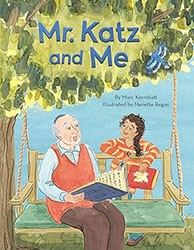Today I am a Woman: Stories of Bat Mitzvah around the World is filled with lyrical accounts of being a bat mitzvah in such exotic places as Cochabamba, Bolivia and Tegucigalpa, Honduras. As co-editor Barbara Vinick reports in her introduction, bat mitzvah and female coming of age ceremonies, unlike bar mitzvahs, are less enshrined in traditional rituals and come in a “dizzying array of forms,” which may make them more “personal and meaningful.” According to Brandeis Jewish historian Jonathan Sarna, the “first indisputable” mention of girl’s coming-of-age ritual appears in the writings of the nineteenth-century sage Joseph Hayim ben Elijah al-Hakam of Baghdad. His book Ben Ish Chai “advised a simcha (celebration) when girls assumed their womanly obligations at age twelve.” (Public religious ceremonies for boys date back to the fifteenth century.)
This publication is an outgrowth of the work of the Hadassah-Brandeis Institute (HBI) whose mission is to study Jewish life worldwide. Reading this book will take you on a fascinating Jewish journey into Africa, Asia, Australia, New Zealand, the Caribbean, Europe including Eastern Europe, the Former Soviet Union, Latin America, the Middle East, North Africa, and North America. It is heartening to read about how many Jews across the globe have a commitment to retaining Jewish practices while at the same time ensuring that women are included. One particularly fascinating account was presented by Remy Ilona, who described Jewish life among the Igbo (Igbo is probably a derivative of Ivri) in Nigeria. Historians speculate that Igbos are most likely descendents of the Israelites who separated from their fellow Israelites in their escape from Egypt and are part of the “Hebrew stream” that also settled in Ethiopia. Ilona, an Igbo lawyer, describes the “culturally Hebraic” aspects of Igbo life. Boys are circumcised on the eighth day of birth. Burial practices are “unmistakably Hebraic in form and content.” About 20,000 have fully returned to “rabbinic Judaism.” In some parts of the Igbo community, there is a coming-of-age ritual for girls. It is considered a “Judaic passage” called “isi migha.” It signifies a young girl’s entry into adulthood and her readiness to accept marital suitors. It is a festive community event celebrated by group dancing and gift giving. Ilona’s niece, Uchennna Ezimmadu is an “Ibo-Benei Yisrael activist” at her university and stresses the importance of an Ibo relationship with Israel and the “importance of going back to our roots of Torah.” All the vignettes are accompanied by a well-researched history of the Jewish community in the area. Bibliography of further reading, endnotes, glossary: illustrations.
Read Barbara Vinick and Shulamit Reinharz’s posts on the Visiting Scribe
Today I am a Woman
The Sisterhood of Bat Mitzvah




